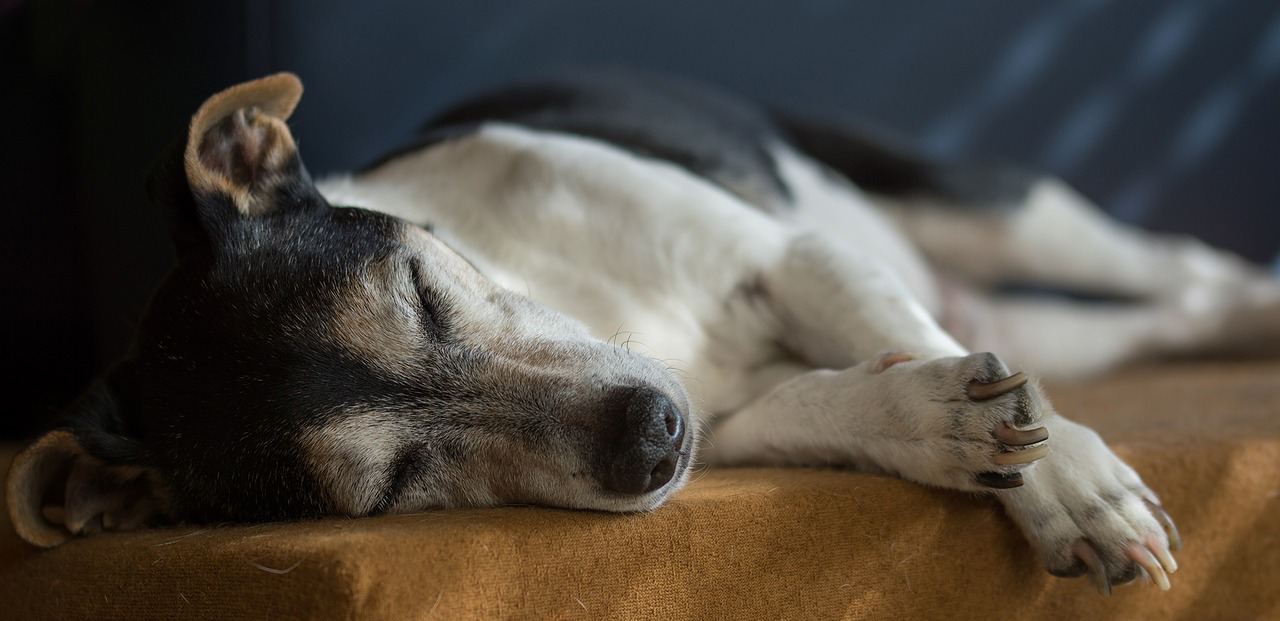Last month we discussed the importance of preventive care for dogs and cats. This month we would like to touch on a subject that is near and dear to Dr. Gorbea’s heart; the care of senior patients. Older dogs and cats still require the preventive care outlined in our last blog, but their age can lead to physical and mental changes that may need additional attention from their veterinarian.
So, what is a senior pet? Per the AAHA (American Animal Hospital Association) guidelines, the qualifications for a pet to be considered a “senior” vary, and it is important to keep in mind that organ systems, species, and breeds of dogs age at different rates. Larger dogs tend to age faster than smaller dogs (i.e. a Great Dane will be considered “senior” at around 5 years of age while a Maltese may get to be 9-11 before attaining senior status). Cats have an overall longer lifespan than dogs, but can start to be considered “seniors” at around 9-10 years of age. Purebreds tend to have more genetic health concerns than mixed breeds, so a 7 year old English Bulldog will likely need more care than a 7 year old Lab mutt. Generally speaking, we consider a pet to require additional veterinary monitoring when they have reached the last 25-35% of their life span.
Once a pet is considered “senior” in our practice, we add a couple of additional steps in our preventive care routine. Instead of coming in once a year for an exam and wellness blood work, your furry friend should pop by to see us every 6 months. Dr. Gorbea will perform her usual thorough exam, and she will pay special attention to your buddy’s hips, teeth, gait (way of walking), and general behavior. She may ask questions like “is it easy for Max to get up and lay down?”, “how is Sadie about going up and down the stairs?”, or “have you noticed any changes in behavior or energy in Henry”? Share everything you’ve observed with your veterinarian and they can make sure your dog or cat’s quality of life is everything it should be.
At that 6 month visit, another panel of blood work will be performed. This panel will include a complete blood count, a thyroid test (hypo- or hyper-thyroidism is one of the most common medical issues for a senior pet), a urinalysis (to check for protein and glucose loss as well as for the presence of blood, white blood cells, or crystals in the urine), and an extended chemistry panel (for a better picture at how the internal organs are functioning). Regular monitoring of these labs can help prevent or treat liver and kidney disease, urine health issues like bladder stones, thyroid disease, and diabetes.
Ever go over to your grandmother’s house and look in her medicine cabinet? Goodness, that’s a lot of medication! Well, just like grandma and grandpa, senior dogs and cats may need additional help as they age. Some of the ways in which your veterinarian can provide additional support are:
- Joint care supplements to promote strength and function in the cartilage and tendons where the bones join in the body.
- Prescription foods that help with weight loss or maintenance (easier on the joints), help support various organ systems, battle urinary or digestive issues, or further support the joints.
- Calming supplements like Solliquin and Composure can be used to help with anxiety associated with cognitive changes in older patients.
- Our Companion Laser Therapy is one of our biggest weapons in the war on old age. By stimulating cellular activity, we can ease the pain and inflammation associated with arthritis, degenerative joint and disc disease, and muscles that are sore from running and playing more than their bodies can handle.
- Plymouth Veterinary Exclusive: our floors are carpeted! As our clients know, our front reception area and exam rooms are all carpeted. We feel that ALL of our patients (but especially our senior patients) deserve a comfortable floor to walk on while experiencing what may already be a stressful situation.. We love how stable and confident our senior patients feel when they walk into our hospital and don’t immediately start slipping on hard tile. In addition, we have area rugs available in treatment and in the ward to use for these same reasons.
- Many others! Just call for a consultation today!
Senior pets are special pets. So as you watch your beloved friend develop grey hair, as the texture of their coat becomes rougher, and as your love continues to grow for them day by day, remember that you have an ally in Plymouth Veterinary Hospital. We are dedicated to life long health, wellness, and quality of life for your furry family members.
Happy Tails!

